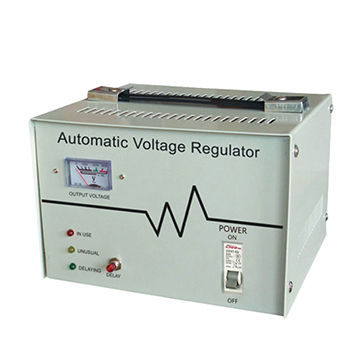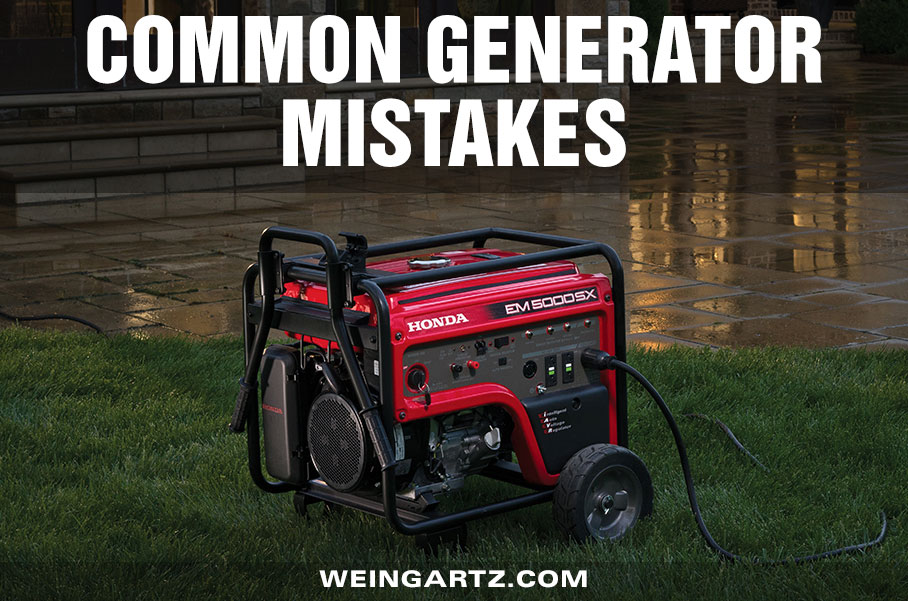Yes, you can use a stabilizer with a generator. A stabilizer helps to regulate the voltage output of a generator and prevents damage to appliances that are connected to the generator.
- Make sure that your generator is properly grounded
- Connect the stabilizer to the generators frame ground or negative terminal
- Connect one end of the black wire to the load side of the generator breaker and the other end to the stabilizer input terminal marked “L”
- Connect one end of the red wire to the line side of generator breaker and other end to stabilizer input terminal marked “N”
- Finally, connect one end of the green wire to ground stake and other end to stabilizer input terminal marked with earth symbol or simply “G”

Credit: www.globalsources.com
Is It Good to Use Stabilizer for Generator?
There is no definitive answer to this question as it depends on a number of factors. If you are using a generator for your home then you may want to consider using a stabilizer, particularly if the power supply in your area is unreliable. A stabilizer can help to protect your generator from damage caused by voltage fluctuations.
However, if you are only using your generator occasionally then you may not need to use a stabilizer.
Can You Put Fuel Stabilizer in a Generator?
Yes, you can put fuel stabilizer in a generator. Fuel stabilizer is designed to keep fuel fresh for up to 12 months, so it will definitely help extend the life of your generator’s fuel supply. Just be sure to add the fuel stabilizer to your generator’s gas tank before you store it for the winter, and make sure you run the generator for a few minutes after adding the stabilizer so that it gets mixed in well with the gasoline.
Is It Bad to Plug a Stabilizer on Generator?
If you have a generator, you may be wondering if it’s bad to plug a stabilizer into it. The answer is that it depends on the generator and the stabilizer. Some generators are designed to work with stabilizers, while others are not.
If you’re not sure whether or not your generator is compatible with a stabilizer, it’s best to check with the manufacturer before using one.
In general, though, using a stabilizer can help protect your generator from voltage fluctuations and power surges. This can extend the life of your generator and prevent damage to sensitive electronic equipment that is plugged into it.
What Kind of Fuel Stabilizer Do You Use for a Generator?
There are a few different types of fuel stabilizers on the market, but they all essentially do the same thing – they help to keep your fuel fresh and prevent it from going bad. The main difference between them is the type of fuel they’re designed for – gasoline or diesel.
If you have a generator that uses gasoline, then you’ll want to use a gas-specific fuel stabilizer.
These products contain chemicals that help to keep the gas fresh and prevent it from breaking down. Diesel generators require a different type of stabilizer, as regular gas stabilizers can actually damage diesel engines. There are plenty of good diesel-specific options on the market that will do a great job of keeping your fuel fresh.
No matter what type of generator you have, it’s always a good idea to use a fuel stabilizer. This will help to ensure that your engine always has fresh, clean fuel to run on and that it doesn’t break down over time due to bad gas.
Champion Tip #18: Using Fuel Stabilizer
Voltage Stabilizer for Generator
If you have a generator, then you know that one of the most important pieces of equipment is the voltage stabilizer. This device helps to regulate the amount of power that is being generated by the generator, and it also helps to protect your appliances from damage caused by fluctuations in voltage.
Most generators come with a built-in voltage stabilizer, but if yours does not, then you may want to consider purchasing one.
There are many different types and brands of voltage stabilizers on the market, so it is important to do your research before making a purchase.
One type of voltage stabilizer is the automatic voltage regulator (AVR). This type of device is designed to automatically adjust the output of the generator based on the load that is being placed on it.
AVRs can be used with both single phase and three phase generators.
Another type of voltage stabilizer is the static voltage regulator (SVR). This type of device uses a series of diodes to regulate the output of the generator.
SVRs are typically used with single phase generators only.
How to Stabilize Generator Power
Generators are a great way to provide power during a power outage, but they can be tricky to use. If you’re not careful, you can end up with a generator that doesn’t provide enough power or is unstable. Here are some tips to help you stabilize your generator power:
1. Make sure the generator is properly grounded. This will help prevent electrical shocks and damage to the equipment.
2. Use surge protectors on all of your devices.
This will help prevent damage from spikes in voltage.
3. Don’t overload the generator. Only use it for essential devices and appliances.
draw too much power from the generator, it can become overloaded and unstable.
4. Keep an eye on the fuel level and make sure it doesn’t run dry.
Portable Generator Voltage Stabilizer
If you have a portable generator, then you know that one of the most important things you need to do to keep it running properly is to regularly check and stabilize the voltage. A voltage stabilizer is a device that helps maintain a consistent level of voltage output from your generator, preventing damage to your equipment. Here’s what you need to know about choosing and using a portable generator voltage stabilizer.
There are two main types of portable generator voltage stabilizers: those that plug into an outlet and those that connect directly to the generator itself. Outlet-type stabilizers are less expensive and easier to use, but they can’t provide as much stability as a direct-connect model. If you choose an outlet-type model, be sure to read the instructions carefully so that you don’t overload the circuit.
Direct-connect models are more expensive, but they offer greater stability since they’re connected directly to the generator’s output terminals. These models usually come with easy-to-follow instructions, making them simple to install. Once installed, all you need to do is turn on the switch when you start your generator and flip it off when you’re done using it.
No matter which type of portable generator voltage stabilizer you choose, be sure to follow the manufacturer’s instructions for proper installation and use.
Can I Use Stabilizer With Inverter
If you are considering using a stabilizer with your inverter, there are a few things to keep in mind. First, check the specifications of your inverter to see if it is compatible with a stabilizer. Some inverters are not designed to work with stabilizers and can be damaged if used together.
Second, make sure the voltage rating of the stabilizer is appropriate for your inverter. Most inverters have a maximum input voltage of 150 volts, so using a stabilizer with a higher voltage rating will provide no benefit. Finally, consider the size of the stabilizer you need.
Stabilizers come in different sizes, so you’ll want to choose one that can handle the power output of your inverter. Using a stabilizer with too low of a wattage rating can cause problems down the road.
Conclusion
The author concludes that it is possible to use a stabilizer with a generator, but it is not necessary.






Leave a Reply